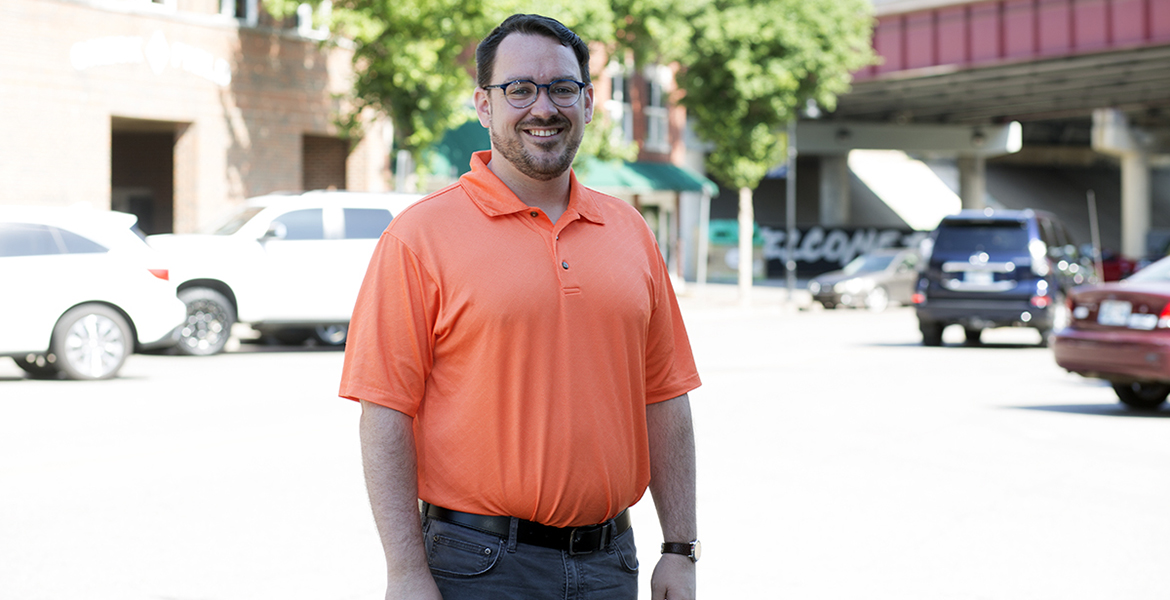
Graduate student works to foster community action on north Tulsa health disparities
Wednesday, July 11, 2018
OSU-Tulsa student Patrick Grayshaw has been drawn to the idea of community engagement since high school and now he wants to make a career of it.
“My social studies class is where I learned about community engagement. I never left it really,” he said. “It’s almost like it’s just my default.”
Grayshaw, a doctoral student in human development and family science, was named a 2018-19 Tulsa Schweitzer Fellow in April. He is among 14 Tulsa fellows and 260 nationally.
As part of the fellowship, he is required to develop and implement a year-long service project addressing the root causes of health disparities in underserved communities.
Tentatively named North Tulsa Dialogue Circles, Grayshaw’s project intends to bring together diverse groups of north Tulsa residents to discuss health disparities in the community and take steps to reduce them.
According to a 2015 study by the Tulsa Health Department, people who live in a north Tulsa zip code have shorter life expectancies than those who live in south Tulsa.
Some of the reasons have to do with income, education, social cohesion, health care access, transportation and other neighborhood conditions.
“My interest is seeing community members interacting with each other and solving community problems together,” he said. “I don’t want to help a community. I want to serve the community.”
He chose to work with the nonprofit North Tulsa Community Coalition since his project aligns with the agency’s mission and supplements their current work.
First, Grayshaw put together an advisory committee to oversee the process. His next step is to train facilitators and gather participants from all sectors of north Tulsa to participate in dialogue groups.
Over a year, each group will create an action plan and start implementing it. Grayshaw and the advisory committee will monitor the progress of each action plan well past the first year of his project.
While one dialogue group might suggest ways to improve health, such as working with a local park to create more walking trails, another might come up with something totally different. The key is that each action plan must be attainable, he said.
The dialogue circles are based on the Everyday Democracy model that has been successful throughout the country.
As community members come together to solve a problem, they develop friendships and build trust among one another. And often, they discover resources in the community that can make tangible changes in their lives right away.
The approach is based on the premise that when a community comes together to work on shared issues, the change is more sustainable and lasting.
“A lot of times, people lack motivation because they don’t feel they have control,” Grayshaw said. “I’m hoping there’s an increased sense of hope, that people feel motivated to achieve something. Real change starts within the community.”
